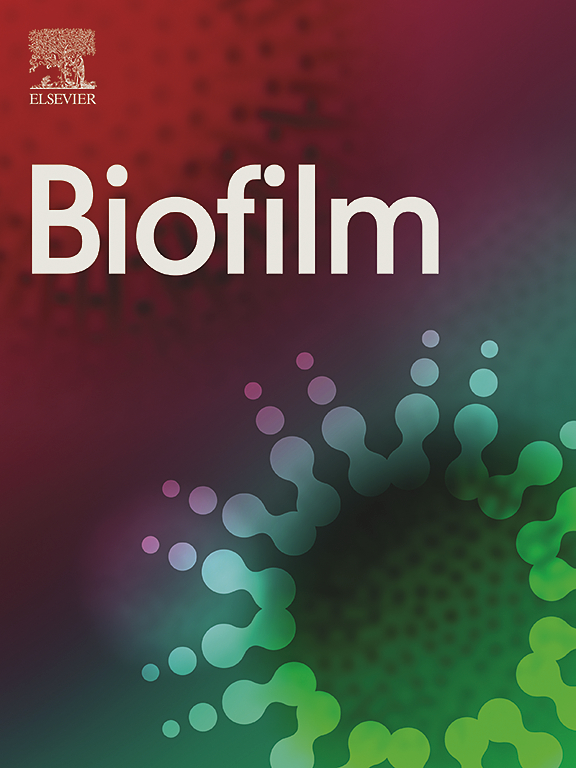Exploring CISD1 as a multifaceted biomarker in cancer: Implications for diagnosis, prognosis, and immunotherapeutic response
IF 9.4
2区 医学
Q1 BIOCHEMISTRY & MOLECULAR BIOLOGY
引用次数: 0
Abstract
CISD1, an outer mitochondrial membrane iron-sulfur cluster protein, regulates intracellular iron levels, oxidative stress, and mitochondrial dynamics, playing critical roles in cellular bioenergetics and redox homeostasis. Although CISD1 has been identified as a prognostic biomarker in specific cancers, its broader implications in tumorigenesis, cancer progression, and immunotherapy remain unclear. Given the heterogeneity of cancer and the need for robust biomarkers across cancers, this study conducts the first comprehensive pan-cancer analysis of CISD1 by evaluating its roles in cancer and treatment. We obtained and analyzed data from databases including TCGA, GTEx, THPA, GEPIA2.0, SangerBox, cBioPortal, TIMER2.0, CAMOIP, DAVID, SRPLOT, and TISIDB. Our findings reveal significant alterations in CISD1 expression at both transcriptional and translational levels, as well as gene mutations across multiple cancers, indicating its potential as a diagnostic biomarker and its involvement in cancer development and progression. CISD1 dysregulation is linked to poor clinical outcomes, as shown through its impact on patient prognosis. GO and KEGG analyses show that CISD1 plays critical roles in cellular bioenergetics. Notably, CISD1 expression is significantly correlated with tumor stemness indices, tumor mutation burden, microsatellite instability, and immune checkpoint proteins in multiple cancers, and altered CISD1 levels are also observed in patients responding to immunotherapy, further supporting its role not only in prognosis but also as a key predictor in immunotherapy responses and outcomes. Our findings demonstrate CISD1 as a reliable and promising diagnostic, prognostic, and immunotherapeutic biomarker for multiple cancers, emphasizing its crucial role in cancer biology and potential to guide personalized cancer therapies.
探索CISD1作为癌症的多方面生物标志物:对诊断、预后和免疫治疗反应的影响
CISD1是线粒体外膜铁硫簇蛋白,调节细胞内铁水平、氧化应激和线粒体动力学,在细胞生物能量学和氧化还原稳态中起关键作用。尽管CISD1已被确定为特定癌症的预后生物标志物,但其在肿瘤发生、癌症进展和免疫治疗中的广泛意义尚不清楚。考虑到癌症的异质性和对癌症生物标志物的需求,本研究通过评估CISD1在癌症和治疗中的作用,首次对CISD1进行了全面的泛癌症分析。我们从TCGA、GTEx、THPA、GEPIA2.0、SangerBox、cBioPortal、TIMER2.0、CAMOIP、DAVID、SRPLOT和TISIDB等数据库中获取数据并进行分析。我们的研究结果揭示了CISD1在转录和翻译水平上的显著变化,以及多种癌症的基因突变,表明其作为诊断生物标志物的潜力及其参与癌症的发生和进展。CISD1失调与不良的临床结果有关,这可以通过其对患者预后的影响来证明。GO和KEGG分析表明CISD1在细胞生物能量学中起关键作用。值得注意的是,在多种癌症中,CISD1的表达与肿瘤干性指数、肿瘤突变负担、微卫星不稳定性和免疫检查点蛋白显著相关,并且在免疫治疗应答的患者中也观察到CISD1水平的改变,进一步支持其不仅在预后中发挥作用,而且是免疫治疗应答和结局的关键预测因子。我们的研究结果表明,CISD1是一种可靠且有前景的多种癌症诊断、预后和免疫治疗生物标志物,强调了其在癌症生物学中的关键作用和指导个性化癌症治疗的潜力。
本文章由计算机程序翻译,如有差异,请以英文原文为准。
求助全文
约1分钟内获得全文
求助全文
来源期刊

Genes & Diseases
Multiple-
CiteScore
7.30
自引率
0.00%
发文量
347
审稿时长
49 days
期刊介绍:
Genes & Diseases is an international journal for molecular and translational medicine. The journal primarily focuses on publishing investigations on the molecular bases and experimental therapeutics of human diseases. Publication formats include full length research article, review article, short communication, correspondence, perspectives, commentary, views on news, and research watch.
Aims and Scopes
Genes & Diseases publishes rigorously peer-reviewed and high quality original articles and authoritative reviews that focus on the molecular bases of human diseases. Emphasis will be placed on hypothesis-driven, mechanistic studies relevant to pathogenesis and/or experimental therapeutics of human diseases. The journal has worldwide authorship, and a broad scope in basic and translational biomedical research of molecular biology, molecular genetics, and cell biology, including but not limited to cell proliferation and apoptosis, signal transduction, stem cell biology, developmental biology, gene regulation and epigenetics, cancer biology, immunity and infection, neuroscience, disease-specific animal models, gene and cell-based therapies, and regenerative medicine.
 求助内容:
求助内容: 应助结果提醒方式:
应助结果提醒方式:


